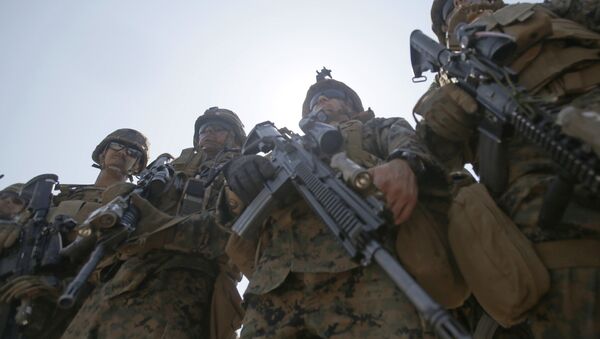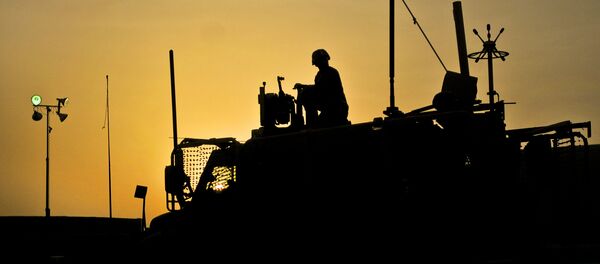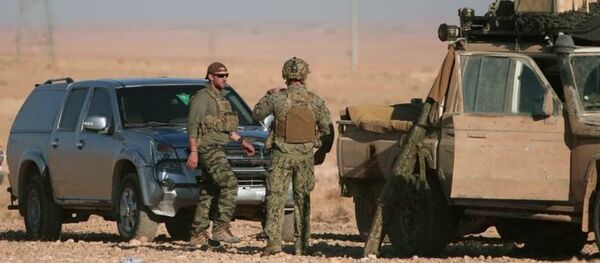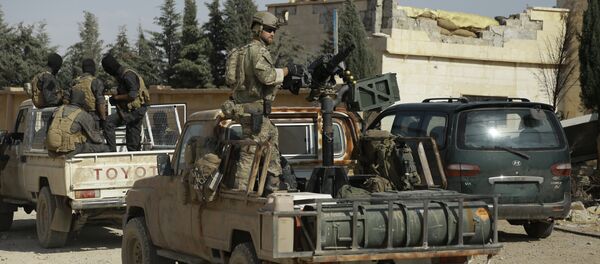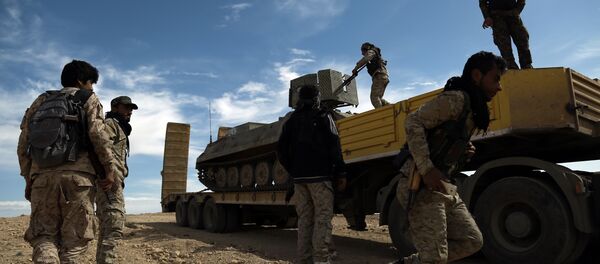Earlier this week, Kurdish sources told Sputnik that hundreds of US Marines had begun arriving in northeastern Syria's al-Hasakha province from bases in Iraqi Kurdistan. In addition to about 400 Marines, an artillery battery is also expected to be delivered to the US base.
In analysis on the subject for RIA Novosti, geopolitical observer Vladimir Lepekhin suggested that there are three important conclusions which can be drawn from the US deployment.
"First, it is obvious that the US military is expanding its presence in Syria. Second, they are moving their Marines from the northeast closer to Raqqa, Daesh's capital. Thirdly, the US military are being deployed to Raqqa from northern Iraq, from outside Mosul, where for almost half a year now the Iraqi military, even with US support, has been unable to successfully liberate the city from the terrorists."
With all this in mind, Lepekhin suggested that a logical question that arises is: "Why is the US military, forgetting about Mosul, shifting its attention to Syria's Raqqa instead?"
In the course of the Syrian war, Raqqa became Daesh's capital; Mosul was turned into their main support base in northern Iraq. Aleppo, meanwhile, had become the capital of the so-called 'moderate opposition', "from where, until recently, the terrorists threatened Assad. Aleppo turned out to be not only the headquarters for the Nusra Front and other terrorist groups, but for Western 'military experts' as well, something that became evident only after the liberation of the city by the Syrian Army with Russian air support."
Their efforts at establishing a post-Assad Syria failing in Aleppo in late last year, US strategists decided to up US efforts in Mosul instead, beginning a campaign to storm the city "to compensate for their moral defeat in Aleppo." Unfortunately for them, the analyst noted, President Obama's pledge together with Iraqi Prime Minister Haider al-Abadi to liberate the city before the year was up didn't pan out.
The words of Lieut. Gen. Stephen Townsend, who bragged in October 2016 that the US would need 'a few weeks' to capture the city, "look even more comical," the observer added. "The blitzkrieg did not work out: Daesh militants and other terrorists, having lost the battle for Aleppo, did not plan on losing Mosul, a city that was even more important for them in the strategic (and commercial) sense." Accordingly, the fight for Mosul continues to rage.
And it's for this reason, Lepekhin stressed, that the Pentagon has hastened to redeploy their military experts to a new battlefield – Raqqa.
The formal and very public goal of liberating the city from Daesh aside, the expert suggested that it would be naïve to believe that the Pentagon has the intention of actually crushing the terrorists completely in Raqqa. "Rather, they hope to come to some mutually beneficial agreement – like Daesh leaving Raqqa in exchange for specific guarantees and promises to support them in the future."
"With the capture of Raqqa, the US military can kill two birds with one stone: claiming on a victory over Daesh and simultaneously justifying their presence in northeast Syria." This presence would guarantee becoming a thorn in Iran's side, would aid Israel, serve as a counterweight to the Russian military base in Tartus, etc.
At the moment, Syrian Democratic Forces formations are also being pulled up to Raqqa. However, the journalist warned that Kurds need to realize that the US-led coalition is playing its own game, "pursuing their own interests, using the SDF as cannon fodder."
As is standard, the US has so far limited its military engagements against Daesh to air strikes, which are already taking a toll on Raqqa's civilian population. "Nevertheless, judging by the fact that the Pentagon has also begun increasing its ground-based presence in the area, the US armed forces seem to be more firmly set on capturing Raqqa than in the case of Aleppo and Mosul," Lepekhin concluded.

